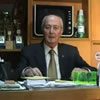National Content: Italy
Living as evacuees
| Source | Interview to Gianfredo Seconi |
| Event referred to | City bombing during World War II |
| Technological characteristics | Type of file: video Extension : .avi Characteristics: 320X240 Dimension of the file: 3,28 mb Availability proposed: Full availability |
| Description of the source | Kind of source: Interview Origin of the source : Interview to a witness Language: Italian Copyright issues: Full availability |
| Contextualisation of the source | During Allied bombings against Terni, people tried to shelter escaping towards the surrounding villages. |
| Interpretation of the source | The evacuation that had been sought as a mean of survival shows the ability to adapt and to live together with the ex-allied. The exchanges of favours invites soldiers, civilians, occupied and occupying forces to think how, even in a time of war, it is possible to establish relationships based on human kindness. |
| Original Contents | |
| Original Contents (English Translation) | My name is Gianfredo Seconi. At the time of the first bombings during the last world war I was only nine years old. My parents owned a very little shop, just like the one we have today, that sold clothing, wool and other small things. Just before the first bombings of the city of Terni the alarm system went off. I was nine at the time, my mother was pregnant and my father was very worried about us. He had to stay at the shop but he knew that my other two younger brothers and I would get out of the house each time we heard the siren, because we were curious to see if any planes were coming, and this was obviously very dangerous. My father decided to take us away from Terni, to Rosciano, a little village between Arrone and Polino. A few days later the first bombing began and one bomb was dropped in the very garden of our house. From Rosciano we saw all the bombings on the city and we always lived with great worry, especially my mother, who knew that my father had to go to Terni to open the shop because we needed the money. He always managed to escape the bombings because he always ran to the shelter that was where today we have Piazza della Repubblica. Meanwhile my father came back and forth to Rosciano by bicycle, risking to be shot in Valnerina. During those days, which was a nice time sometimes because we were so young, we became friends and played with the people of the village until one day we were visited by the SS. They were retreating and they first checked and then took our house. We shared everything with them: we shared the bedrooms and the kitchen and my grandmother cooked for everyone. My uncle knew a little German, so the commander of the battalion warned him to let everyone know that for each dead German soldier they would have killed ten civilians. In the meantime a sort of friendship started to form among us all because we understood that we were good people who did not make any trouble. When they saw the little truck we used daily to move the goods from the shop they wrote “taken” on it, and the commander signed it and therefore saved us from other battalions going through our area. |
